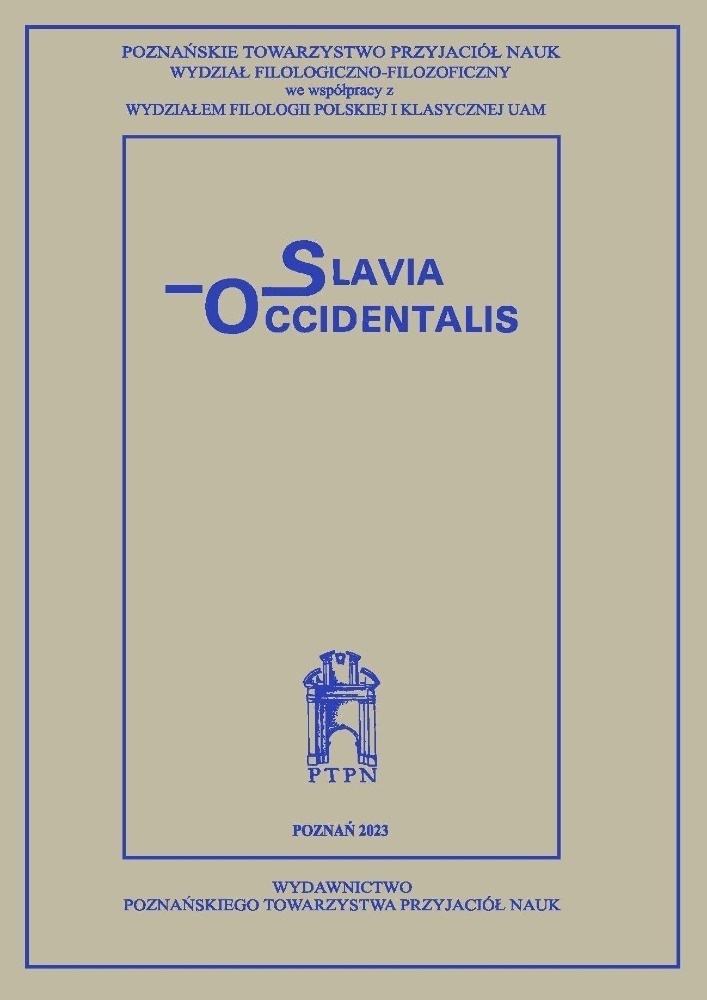Abstrakt
In the introduction to his article, the author refers to a dissertation on the names of male religious orders and societies (cf. Sł. Oc. t., r. SIOc 69, 2012, s. 45-80; 3). The article has been broken down into three basic parts: I. names of female religious orders which have (earlier) male counterparts, e.g. filipinki : filipini, józefiłki : józefie: II. autogenic names which are not structures derived from male order names like e.g. precjozynki, sakramentki, III. various semantic and word-formation related issues. It turns out that most frequently, female names are formed with the feminative suffix -ka in singular or -ki in plural and the extended suffix -anka, -ynka in singular / -anki -ynki in plural. These formations are far less complex than in the masculine names. The source materials used by the author are the same as in analyses of male religious orders and societies; they are presented as a list of abbreviations at the end of the article.Bibliografia
E. Breza, Imiona od nazw atrybutów i świąt Matki Bożej, „Onomastica” LIV, 2010, s. 139–178.
E. Breza, Nazwisko Protman(n), „Komunikaty Mazursko-Warmińskie” 2000, nr 1, s. 73–78.
E. Breza, Nazwy zakonów i zgromadzeń zakonnych męskich, „Slavia Occidentalis”, t. 69, 2012, s. 45–80. DOI: https://doi.org/10.14746/so.2012.69.3
B. Warzecha Nazwy nieoficjalne żeńskich zgromadzeń zakonnych i ich członkiń w Polsce [w:] „Język Polski” XCIII, 2013, s. 196-205. DOI: https://doi.org/10.31286/JP.93.3.6
Licencja

Utwór dostępny jest na licencji Creative Commons Uznanie autorstwa – Użycie niekomercyjne – Bez utworów zależnych 4.0 Międzynarodowe.
